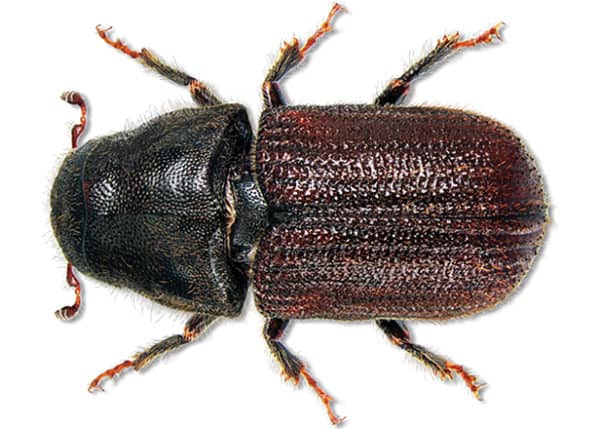“Iconic” forests could be lost to pine beetle, experts say

 Climate change is opening up the vast forestlands of New England and Eastern Canada to the southern pine beetle, which in recent decades has been marching steadily northward, says a new study from Columbia University.
Climate change is opening up the vast forestlands of New England and Eastern Canada to the southern pine beetle, which in recent decades has been marching steadily northward, says a new study from Columbia University.
Native to Central America, Mexico and the southeastern US, the southern pine beetle has in more recent years been spotted in pine forests along the US Eastern Seaboard in places like New Jersey, Long Island and Connecticut, a trend which is likely to continue as global warming makes more northernly regions more hospitable to the destructive pest.
“We could see loss of biodiversity and iconic regional forests,” says Corey Lesk, graduate student with the Department of Earth and Environmental Sciences at Columbia University in New York and study lead author, in a press release. “There would be damage to tourism and forestry industries in already struggling rural areas.”
About the size of a grain of rice, the southern pine beetle is one of a number of species of bark beetles that attack and kill live trees, feeding off the inner bark and disabling the trees nutrient transportation system. Its cousin, the mountain pine beetle, has already proved devastating to forests on North America’s west coast, destroying more than 18 million hectares of forest in British Columbia alone.
Both species have benefitted from warmer winters brought about by climate change, with researchers now estimating that the southern pine beetle will reach as far north as Nova Scotia by the year 2020. By 2050, 78 per cent of pitch pine forests running from southern Maine to eastern Ohio will be available to the pest, by 2080, it will reach 71 per cent of red pine and 48 per cent of jack pine forests covering 70 million hectares in the US and Canada.
“This scenario would pose a significant economic and ecological risk to the affected regions, including disruption of local ecosystem services, shifts in forest structure, and threats to native
biodiversity,” say the study’s authors.
The new projections are based on correlations between temperature readings of pine bark in regions where the beetles have been sighted and estimations of annual minimum air temperature increases expected for upcoming decades. The minimum temperature is said to be key, with a low of -10 degrees Celsius described as the cut-off for the southern pine beetle. As winters get milder, more regions will see their coldest night of the year creep up to that number.
Over the past 50 years, the coldest night of the year has risen by about four degrees Celsius. By comparison, this past winter saw New York City’s coldest temperature reach just -10 C, while Boston’s was -15 C.
Forests in Central and Eastern Canada are expected to become home to the mountain pine beetle, too, over the next two decades. That species first crossed over the Rocky Mountains in the early 2000s, making its way into southern Alberta by 2002 and currently poised to reach into Saskatchewan.
The new research is published in the journal Nature – Climate Change.

